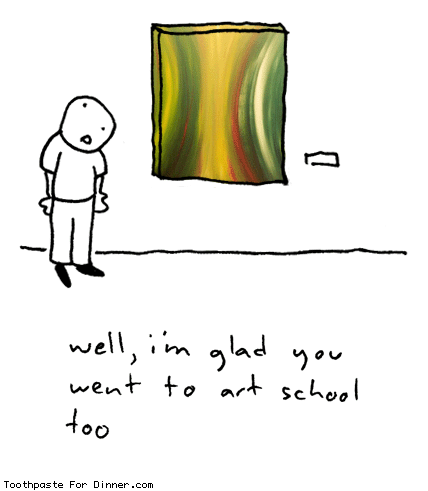 I'm tossing & turning tonight. Can't sleep. Have had a migraine for almost 24 hours, not abnormal, but not a regular thing either. So I'm laying in bed thinking about all that has happened lately and I remembered my senior year at Cornish...
I'm tossing & turning tonight. Can't sleep. Have had a migraine for almost 24 hours, not abnormal, but not a regular thing either. So I'm laying in bed thinking about all that has happened lately and I remembered my senior year at Cornish...Fall semester I directed & produced Sweet Eros by Terrence McNally. I loved working on that show. It's a story in essence about stockholm syndrome (when the person kidnapped starts to identify with the kidnapper, sometimes they fall in love, etc.) but the entire time the female is supposed to be naked on stage. And she doesn't speak, only sings briefly. We get the whole story from the words of the kidnapper (we never learn his name if I remember correctly) and he takes us on a journey that is a range of emotions. It's a heavy piece no doubt, but then I kind of enjoy the challenge that an intense piece of theatre gives me.
So second semester seniors usually have an internship or a senior project (where they direct/write/act in a piece & produce it). When asked what I was thinking about doing, I said I'd like to work on Sweet Eros again, I think I scratched the surface with the production and would like to try again. My advisors, cocking their heads, told me I was too young to do something like that. That is for old artists with much more experience than I. When you're young you want to expose yourselves to as many projects as possible and get a wide range of experience.
I heeded their advice at the time, accepting a PR/Marketing internship at On The Boards and an "Assistant to the Director" internship at Intiman (because they don't have "assistant directors" that are interns at LORT B theatres from what I've seen). I'm completely grateful for the way it turned out, I learned tons working with B.J. Jones of Northlight Theatre when I was at Intiman, he even gave me my copy of A Director Prepares, which I cherish dearly. At OtB I learned what it takes to market a theatre/performance space and a show, plus I got a healthy dose of experimental international performance-based (as I like to call it) art that I would have probably not been exposed to as much. My taste and sometimes my aesthetic tend to run on the experimental side, and working there taught me a lot about what I liked, what I didn't and what an audience will put up with.
Now that I'm a few years older, I'm trying to strike out and do work that really means something to me. Alex Hewett and myself have been working on a project we call Graves in the Water (based on Edgar Lee Masters' Spoon River Anthology), which is a generative piece. I guess some don't fully understand generative art because there is no right & wrong in your process, it is all about the process. I love the discoveries we've made along the way, not knowing everything at the on-start may freak some people out, but to me I think it maximizes the potential of what one can do. So I'm not heeding the advice of those wise advisors I had in college and I've taken on a project that will be seen in many iterations. I'm excited to get it up in front of an audience for the first time and see what we learn.
Btw, sad side note: Graves was originally supposed to premiere at The Strand on Halloween weekend. Due to unforeseen circumstances the show has been canceled, but we're in the midst of negotiating for it to be performed in December at another location. More info as it becomes available. I've truly been blessed on this project to work with a group of artists that are so supportive of every path that has been taken. Hope you'll join us for the ride!






